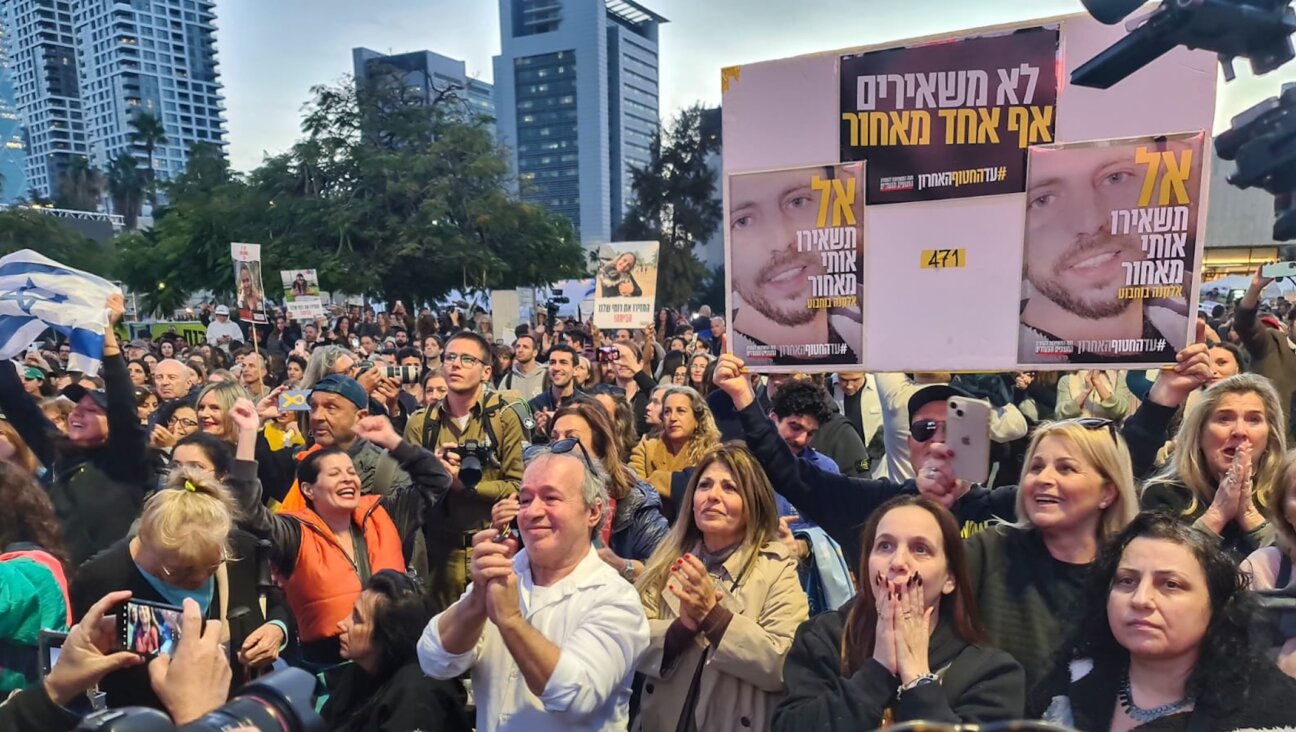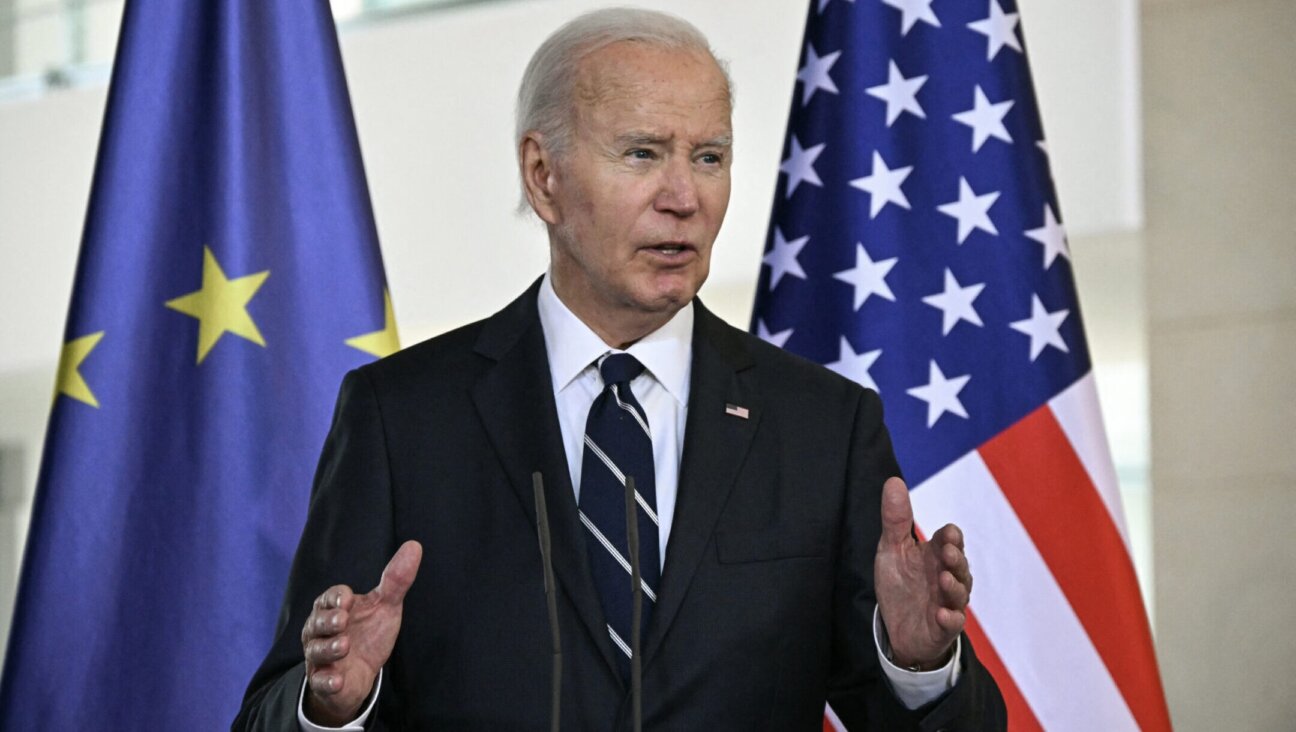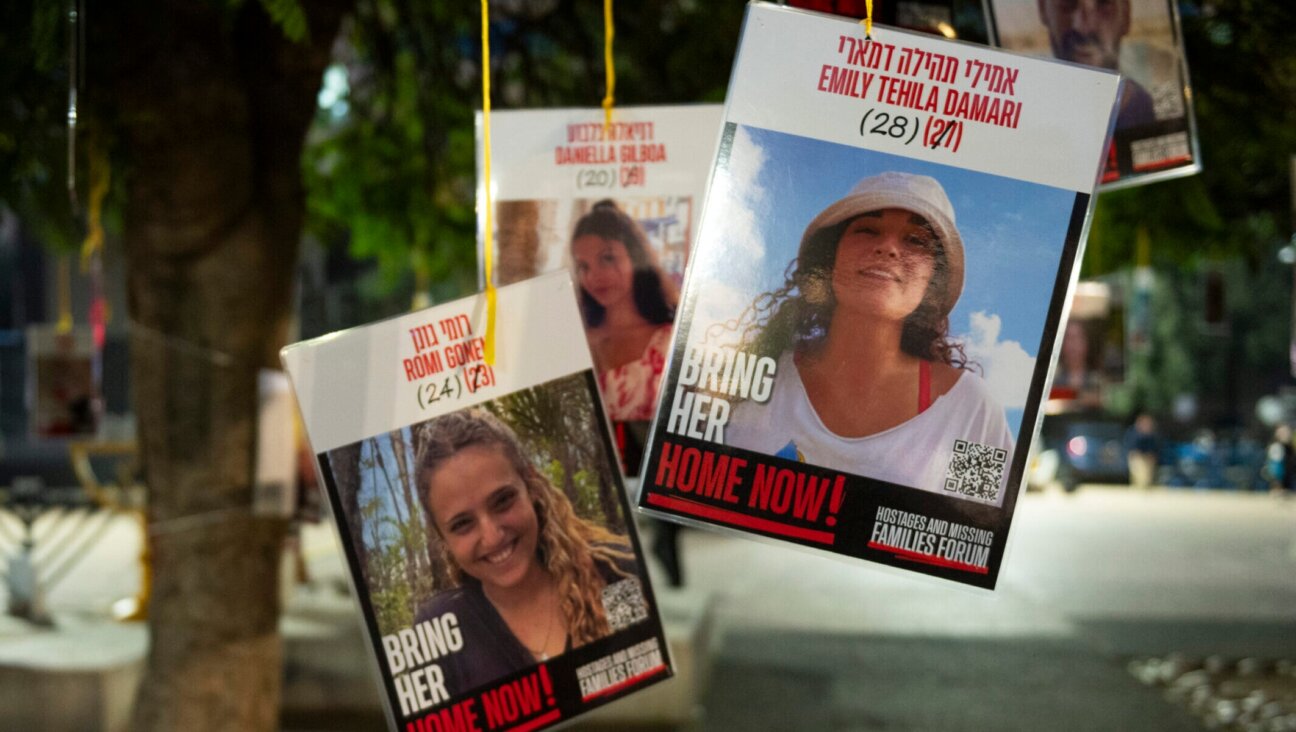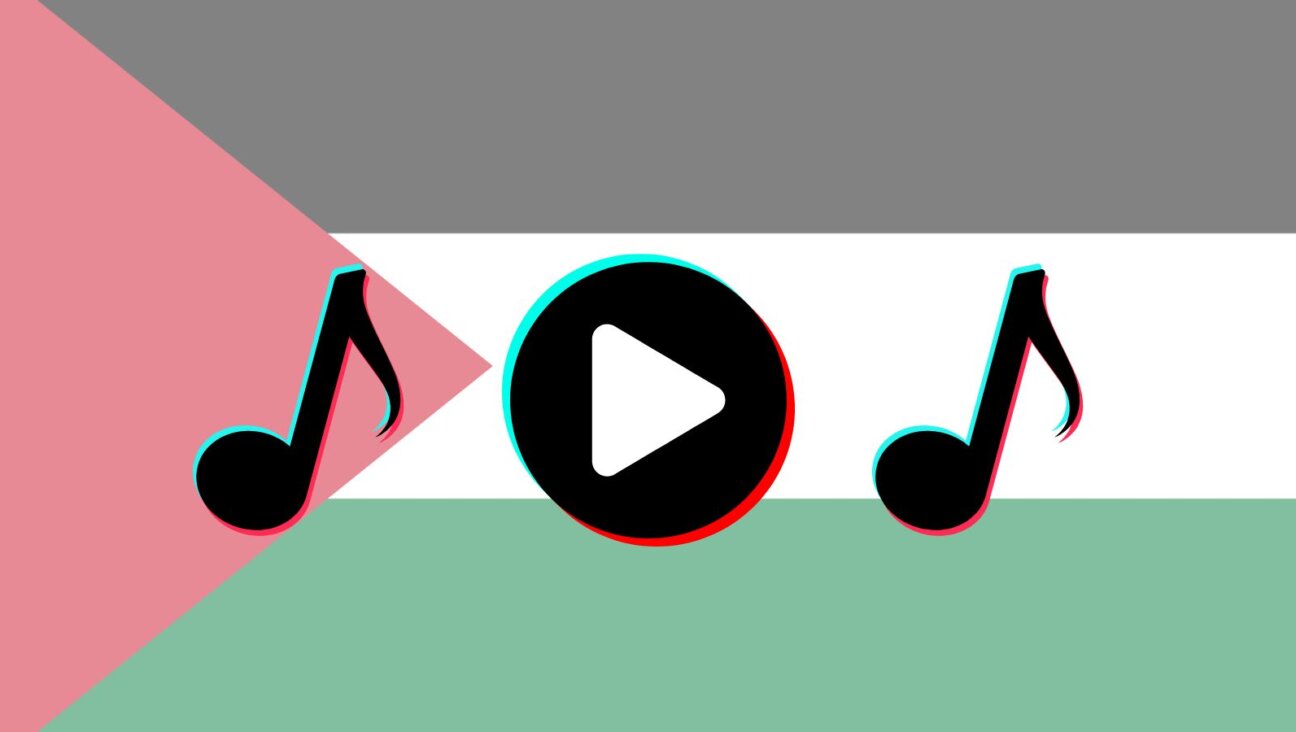Israeli Cities Ban Holiday Bonfires Due To Heat Wave

Ultra-Orthodox Jewish men and children dance around a bonfire in the Mea Shearim neighborhood of Jerusalem during the 2017 celebration of Lag B’Omer. Image by Getty
(JTA) — Municipalities throughout Israel are heeding officials’ calls to ban Lag b’Omer bonfires because of dangerous weather conditions days after 10 Israeli teens died in flash floods during a hike despite warnings of such danger.
The hot and dry conditions, with winds, have blanketed the country for two days. Officials are concerned that the traditional holiday bonfires could spark large and uncontrolled conflagrations.
Along with the municipal bans, the Education Ministry said it would not approve bonfires held under the auspices of educational institutions throughout the country.
Among the large cities that have banned bonfires are Haifa, Hadera, Holon, Beersheba and Modiin. Tel Aviv has identified 21 areas throughout the city where bonfires may be lit.
Other cities have asked residents to refrain from lighting bonfires but will not enforce the directive, including Rishon Lezion, Petach Tikvah, Ashdod and Jerusalem, according to Hadashot news. Municipalities throughout the West Bank also canceled bonfires or identified a specific area where they can be held.
Lag b’Omer marks the 33rd day of the counting of the days between the holidays of Passover and Shavuot and the end of a minor mourning period recognizing the deaths of thousands of the students of the sage Rabbi Akiva. Jewish kabbalist and mystic Rabbi Shimon Bar Yochai was a second- century disciple of Akiva and was revered for his teachings on kabbalah, or Jewish mysticism.
Lag b’Omer also commemorates Bar Yochai’s death and the revelation of the Zohar, a spiritual text. The bonfires, lit at sundown, are meant to symbolize the light of those teachings.
Rabbi David Stav, president of the Tzohar Rabbinical Organization, said in a statement that “the commandment to protect ourselves from harm supersedes” the Lag b’Omer tradition.
“Last week, we were witness to a tragedy that resulted when the advice of authorities was not properly respected,” Stav said.
“I would humbly say that even Rabbi Shimon Bar Yochai would prefer that we act in a responsible and safe manner rather than risk someone being injured or mass destruction of property.”
A message from our Publisher & CEO Rachel Fishman Feddersen

I hope you appreciated this article. Before you go, I’d like to ask you to please support the Forward’s award-winning, nonprofit journalism so that we can be prepared for whatever news 2025 brings.
At a time when other newsrooms are closing or cutting back, the Forward has removed its paywall and invested additional resources to report on the ground from Israel and around the U.S. on the impact of the war, rising antisemitism and polarized discourse.
Readers like you make it all possible. Support our work by becoming a Forward Member and connect with our journalism and your community.
— Rachel Fishman Feddersen, Publisher and CEO




















